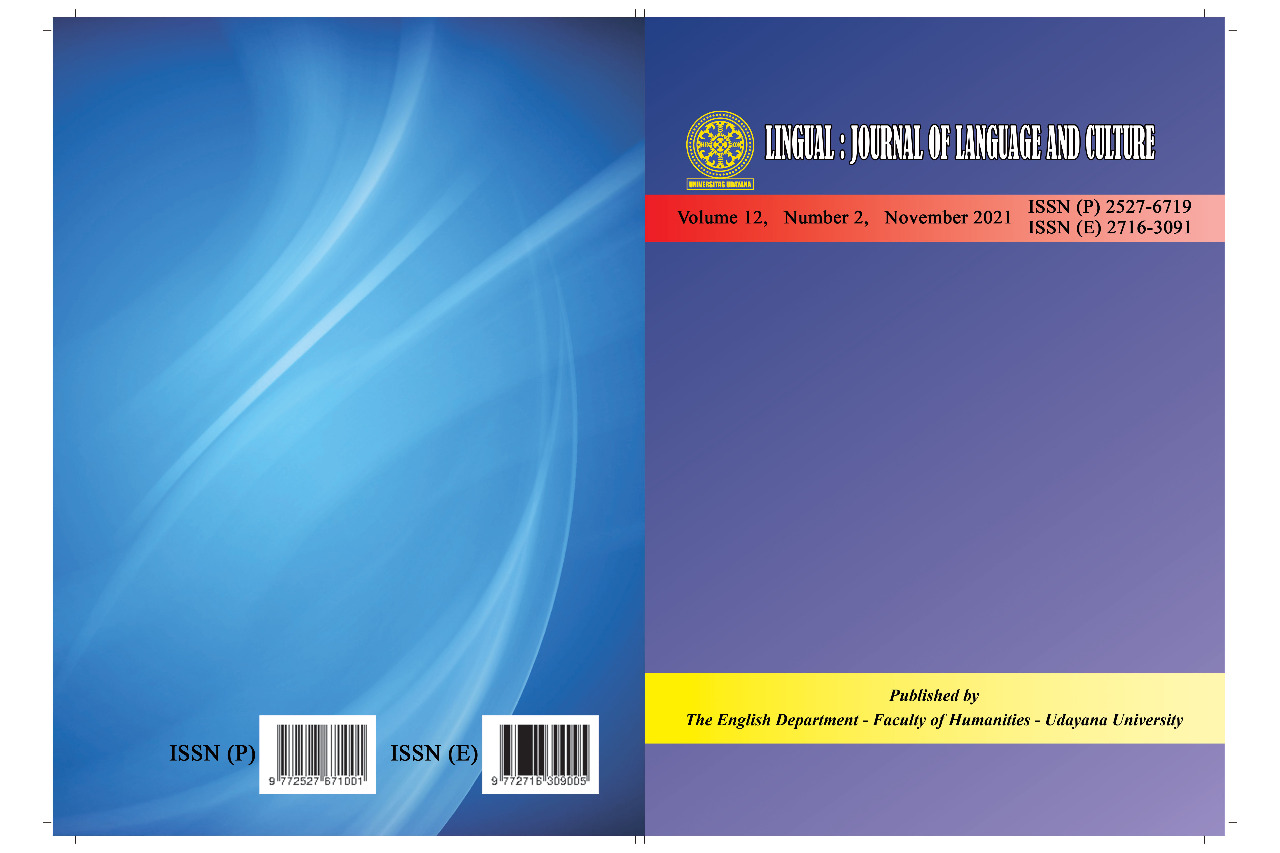The Accuracy of Business English Curriculum to Students’ Communication Performance: The EFL Students’ Perception
Abstract
Measuring the accuracy of a private university in Batam Business English course curriculum to the present needs of workplaces in Batam from students’ perception is essential. Because 85% of the university students are working, it is compulsory to maintain the gap low between what students learned in class and what is implemented in the working field. A questionnaire consists of three dimensions (curriculum, communication performance, and motivation) distributed randomly to 60 students from a population (N=328) of the third-semester students programmed Business English course at a private university in Batam. The result suggested that the curriculum needs to add more practices, peer work, and case studies to improve students’ communication performance. Students’ perspectives in the Business English course reflected a new technical vocabulary that needed to practice in a correlated context. The curriculum content’s relevance to the workplace’s contextual needs is moderately related because not all working students used the English language in their workplace. Additional focus on internal and external motivation through group work and peer work is needed to improve students’ communication performance and confidence. Finally, the existing Business English curriculum is reasonably accurate, supporting students’ communication performance, both written and oral, at their workplace.












